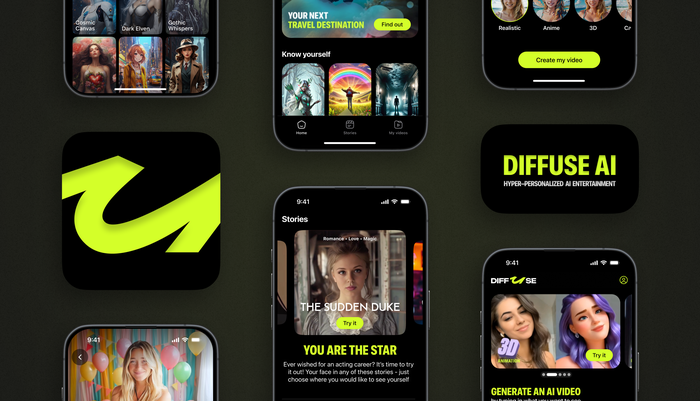That's a Goodcall: Why one startup wants every small business to have enterprise-worthy services

Michael Endler
AI Editor, Google Cloud
Conversational AI tools have been helping big businesses for years. Now they're coming to mom-and-pops, too.
Each day, millions of people call businesses for basic information, like store hours, locations or reservation details. Unfortunately, these efforts often end in frustration, with calls going unanswered or being routed to answering machines and phone trees that don't address the caller’s needs. Moreover, even when calls are answered or returned, many companies struggle to turn the data in customer conversations into actionable insights that help the business. Compounding challenges further, organizations that are short-staffed frequently have to compromise between monitoring phones and dedicating attention to other priorities.
AI-powered virtual agents are helping to address these challenges — and not just at large enterprises with huge IT budgets. We may be familiar with calling our bank and being greeted by a virtual agent, but what about the mom-and-pop bakery down the street? One startup, Goodcall, is showing, AI agents are driving results across the spectrum, not only for national brands but also local shops.
“Our mission is to bring this amazing technology to Main Street,” Bob Summers, Goodcall’s CEO and founder, said.
That mission is succeeding, according to Jessica McElheny, marketing director at Brow Arc, a salon chain with locations around the United States that adopted Goodcall during the pandemic.


“We were hanging by a thread due to COVID,” McElheny said. If locations were short-staffed or needed to change their hours, Brow Arc had no system to update answering machine messages or easily communicate with would-be customers.
“If customers are calling and we’re not answering, they’re gonna call the next business,” she stated, adding that even when staff was able to field calls, other problems could arise—like stylists interrupting interactions with salon customers in order to answer the phone.
Cutting edge for the little guys, too.
Built atop Google Cloud conversational AI services like the Natural Language AI API, Dialogflow, the Text-to-Speech API, and the Speech-to-Text API, Goodcall offers virtual agents that can address most companies mundane yet crucial services.
Goodcall can answer calls, provide answers to basic questions, transcribe conversations so human workers can follow up or learn from interactions, and even filter out spam calls. Another key feature is integration with other services, Summers said, helping to expand the tech ecosystem for small businesses. The Goodcall team focused on creating tools for any company to implement, with simple connections to familiar services, like Google Business and Yelp, and a signup process that can be completed in minutes on a mobile phone.
With Goodcall, McElheny created a new system in which virtual agents are available to answer the majority of customer inquiries, whether that means directing them to a self-service webpage for appointments or providing directions to the salon. Calls are only transferred to salon staff when human assistance is needed, and if no one can pick up, voicemails are transcribed for follow up.
Small businesses tend not to have a large digital presence or deep investments in automation, so the phone tends to be their primary channel. That’s the majority of companies, and we want to bring them the power of AI.
Transcription data and Goodcall’s analytics service are another benefit, McElheny said, helping her to understand customer experiences and interests across Brow Arc’s various locations.
“It’s made a big impact,” she said. “Sales are going up, and the stylists are able to focus on their craft and on customers, instead of the phone.”
Brow Arc customizes virtual assistants for each location—a capability Summers emphasized, noting that to make these rich AI experiences accessible to any company, the process of training agents needed to be painless and straightforward.
Some of this training is handled out-of-the-box. If a business is on Google Maps, for example, Goodcall can automatically ingest the data to learn about operational hours, locations, and other basic details. And because most businesses’ virtual agent needs involve common tasks, like offering a greeting or confirming store hours, core conversational prompts are built into the service. They require just a few lines of text to customize — no programming necessary.
Built for small biz, no IT required
This ease-of-use is adding up: Goodcall processes over 100,000 phone calls per month. “We’re taking this really complex technology that normally an enterprise might spend millions of dollars per year to deploy, and we’re making it accessible to small businesses. It’s the same technology under the hood,” said Summers.
Summers is well-acquainted with the “under the hood” AI: Before founding Goodcall, he worked as a Google product manager on projects including Google Assistant. Even so, choosing Google Cloud wasn’t a foregone conclusion.
“I did a survey and didn’t just assume,” Summers said of the decision. “Google Cloud's word error rates are very low when properly trained, more than 10% better than other options we tried. That’s significant. If the AI can’t hear and understand what the caller is saying, at the start, the rest doesn’t matter.”


While accuracy came first, speed was another consideration.
“We needed latency to be as low as possible,” Summers said. “To have natural conversations, callers and the AI agents need to talk rapidly. Being on Google Cloud, and having access to the AI APIs on the same platform, means we can have a more natural conversation.”
In addition to harnessing natural language capabilities and other AI technologies, Goodcall also leverages Google Cloud more broadly, both to power aspects of its service and to facilitate efficiency across its operations. In the former case, Goodcall leverages Google Cloud products such as Cloud Spanner for data base management and App Engine for development. Meanwhile, Google Workspace enables collaboration and access to important tools and information.
“Going seamlessly between Google Cloud and our domain is invaluable from an authentication perspective,” Summers noted.
Not alone on the phone
Beyond the technology, though, Summers is focused on helping any business with a phone number to provide customer support around the clock, offering both free and paid plans to fit small businesses’ needs.
“We’ve all sat in a restaurant or business, just hearing the phone ringing, with no one able to pick it up,” he said. “Think about your experience calling a salon or a lawn care company and being unable to reach them. These businesses tend not to have a large digital presence or deep investments in automation, so the phone tends to be their primary channel. That’s the majority of companies, and we want to bring them the power of AI.”
To learn more about Goodcall, visit their website. And to explore how Google Cloud’s conversational AI technology can help your business, check out our solutions page and this recent article from Andrew Moore, our head of AI.


